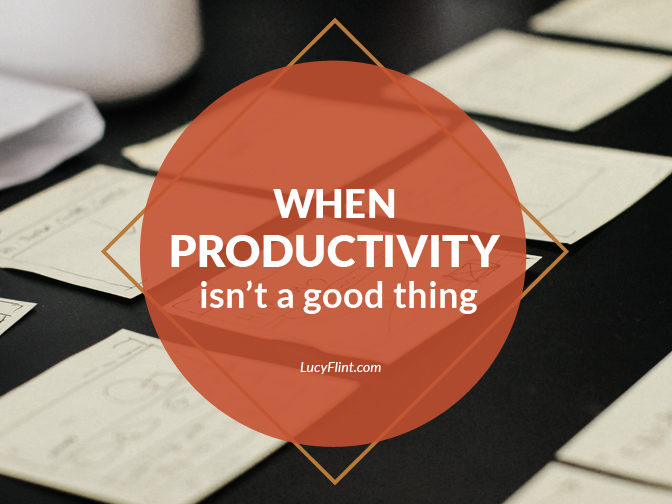I can't spend a month chatting about celebrations without actually having a real, honest-to-goodness party. Agreed?
And since it's mid-August, I figured it's high time that you and I throw a party together.
What's the occasion? I'm sooooooo glad you asked. This is a party to celebrate your writing life. Celebrating the fact that you are a writer: a person who writes. That's worth a celebration.
If you're with me, great.
If you're feeling kind of meh about your writing life, and unconvinced that a party is a good idea: I dare you to read to the end of this post. Seriously. Because I strongly suspect that you need this party.
Okay: Let's do a little party planning!
For starters, you'll need to invite yourself.
Yup. Formalize this a little bit. Set a time, a date. Make plans. This is a real party and it will need a real time on your calendar.
It's all too easy for life to swallow up our good ideas; and it's also easy for the rest of the demands in the writing life to take over good intentions (and the very real need) to celebrate.
So: make yourself an invitation. Write in with your swankiest handwriting, or print it in a large lovely font. Something like: I AM INVITED! To a Writing Party, on (date), at (time), at (place).
Got it? Cool. Leave it on your writing desk, or in your work space so that you don't forget.
And now it's time for a little shopping trip! We're gonna go get some supplies.
All good parties involve food. (And, yeah. You know me. I'm all about some good food.)
What says "party food" for you? Trail mix and popcorn? Something sparkly to drink? Or Trader Joe's Macarons? Go get it.
And don't shrug and say that this silly little occasion isn't worth it.
... Tell me, what would a superpowered and totally wonderful writing life do for you? How much would you be up for enjoying your work, day in, day out? For feeling exhilarated, for your imagination to be stimulated and useful?
What would it mean, if you loved your writing life like crazy, and had a totally wonderful relationship with your writing life?
Yeah. That's what I thought.
If we want a dreamed-of writing life, then we need to put the work in to make it lovely. In other words, it's worth buying the fancy cookies.
Next up: party favors!
Let yourself loose in an art store, office supply store, or at least the Back-to-School Section of your nearest Target or Walmart or some such place.
Take yourself shopping and go crazy. Stock up on your favorite writing supplies, pens and markers, beautiful journals and papers.
Anything that makes your writer's heart squeeze a little: pick it up.
And then--and yes, you must!--pick up some other decorations.
Get some flowers, balloons, even those fancy themed paper cups and plates if you like! As much party stuff as you want! Banners, garlands... You really are allowed to go crazy.
... But if you're more tempted to not go crazy, then I'm guessing you're the type of person who really really REALLY needs to do this.
Can I talk to you for a sec? Here's the truth: It doesn't work to just celebrate your writing in your mind.
Let me put it to you like this: If you've made the commitment to be a writer, to participate in this writing life full time, and to stick with it, then guess what. Your writing life is a little bit like a spouse.
You've committed to it, for the dark times and the bright. And too, the writing life will shape you every bit as much as you'll shape it. It's a big deal.
So I'm going to go ahead and call it a marriage. You're married to the writing life.
What happens in healthy marriages? Now and then, they celebrate. They pull out the stops for big anniversaries, and they also celebrate the quirky anniversaries of events that only matter to the two of them.
There is a time when it is the best and healthiest and most right thing to have a bit of a party.
And if you're more of the part-time-to-hobbyist writer, you're not off the hook either! That's like having the writing life as a really good friend. And good friends: they have their celebrations too.
Real ones. With cake. And streamers.
So at LEAST get yourself some flowers and a cheap balloon from the supermarket. Okay? Okay.
Got all your stuff? Great.
On the actual day of the party, take a little time to set everything up.
Light some candles. Make sure that the balloons and flowers are out and looking festive. Put your cookies on a tray. Do it all up, like someone is coming who you really think is special.
Like you're celebrating something valuable.
Because you are.
All set? Okay.
So there you are, with your notebooks and your pens (or markers, or pencils, or whatever). And it's time for your party to begin!
Have some of the food, and the sparkly drinks, and a few cookies. Get into the party spirit a bit. And try not to feel--let's be honest--really really awkward about this.
You're having a party for yourself. For writing. Maybe that feels weird.
But hey, you're not the only guest: this is for your writing life, right? So let's make sure it shows up. This is how:
After you brush the macaron crumbs off your lap, grab your new lovely notebook, and write the answers to these questions. Try to write honestly and without belaboring it too much. Use complete sentences, or don't! Draw pictures too if you like.
But one way or another, write down the first things that come to mind:
- When did you feel like this writing life was a thing you were going to pursue? When did you start acting like a writer, one way or another?
- What has been the highlight of your writing life so far? Its best moment?
- On the best of all writing days, what does it feel like for you to be a writer? The writing sessions when you finish and say--maybe a little surprised--"that was really great!" What does that kind of day feel like, in your body, in your mind, in your heart?
- What kinds of things--places, people, books, images--consistently inspire you? What tugs at your imagination?
Got all that? Feel a bit of that writing glow? Oooh. Me too.
Shake out your fingers, have some more cookies, and then we're going to do a little more thinking. Ready?
Okay. Give yourself a little more time to answer these.
1) Think about your future writing career. Ten, twenty years down the road. Imagine that it's exactly what you dreamed of. Write down what you see--how many books you've written, and what kinds of stories they are. What your huge fanbase says about your books. Snippets of reviews. Blurbs and endorsements from famous authors. Sketch it all out.
2) Now, with all that future dream in mind, write down specifically what your future writing space is like. When your writing dreams are coming true, what does your writing desk look like? What kinds of tools do you use? What sorts of trinkets and things are around you? What have you put in your space that helps you be the astoundingly productive and well-loved writer that you've become?
3) In your dreamed-up writing future, how do you protect the time you need to work? What kinds of arrangements and understandings do you have with your friends, your family? What kind of working hours do you keep? What kind of time-space do you have for all the things you do for your writing? What is that idealized writing-routine like?
4) And finally, in your dream writing future, how do you feel about your work? How do you feel about the books you've written, and the books that you have yet to write? What kinds of emotions show up when you're at that future writing desk? How do you treat yourself and your work in your mind?
Whew! That was a lot of good thinking. Take a break. Have more cookies. Walk around the room. Mingle with yourself for a sec. Shake out your fingers. Clear your brain.
We have one more round to go, and this is a super, super important one. So grab another glass of bubbly, and let's get to it. All set?
Okay. Think about the writing life that you've just imagined so richly. The way you'll feel about your writing work, the kind of shape your writing life takes up, the things you'll do to be the writer you want to be.
I want you to make one more list: Write down all the ways that you can have that dreamed-up writing life, all the stuff you wrote down in #2 and #3 and #4, right now.
Don't get swamped by "I can't" and "but you don't understand" and obstacles. Try to boil it down, and get at all the ways you can make those things realities or near-realities.
For example: If you dreamed up a writing studio deep in the Rocky Mountains, but you can't exactly afford one now: what if you put a mountain-scene painting in your writing studio? A pine-scented candle? Can you create a mountain-esque space?
If you dreamed up a writing schedule that's impossible for you right now, how could you slowly work toward that? Can you build toward it, a half-an-hour at a time? Skipping TV, and forcing other commitments to respect your writing time?
If you thought up wonderful wild things like vacations where you simply get away to write... How could you find a way to do that now? Maybe not the beach for a week, but maybe a nearby lake for an afternoon?
And whatever mindset you wrote down in #4: you can practice thinking and feeling that way right now too, regardless of what your writing life looks like. You can practice being kinder with yourself, you can practice being more disciplined, you can practice treating yourself well.
See what I mean?
There are aspects of your dream writing life that are truly within reach.
Write down as many of these as you can think of. Push yourself.
Can you come up with at least a dozen ways to come nearer to your dream writing life? (I bet you can.)
And then: can you put them into effect over the next week or two? Or even, today?? (You can! You totally can.)
Imagine what that would do for you both, your writing life and you! Just think how that would feel.
Whew! That was a lot of festive work. Reward yourself with cake. Maybe have a little dancing party to celebrate new possibilities.
Before you go, pour yourself one last drink, and read yourself this quote from George Eliot. It's a toast, to you and your future writing life:
It's never too late to be who you might have been.
If you've been discouraged about your writing life lately, it's not too late. You can still be the writer that you want to be. So let's drink to that.
And now you're free to take your party favors and put them in your writing area. Tie the balloons to your writing chair, and set the flowers on your desk.
And maybe savor the celebration a bit longer, by diving into some lovely reading. Or even--you know--write something.
Ooh. The ideal after-party.

















